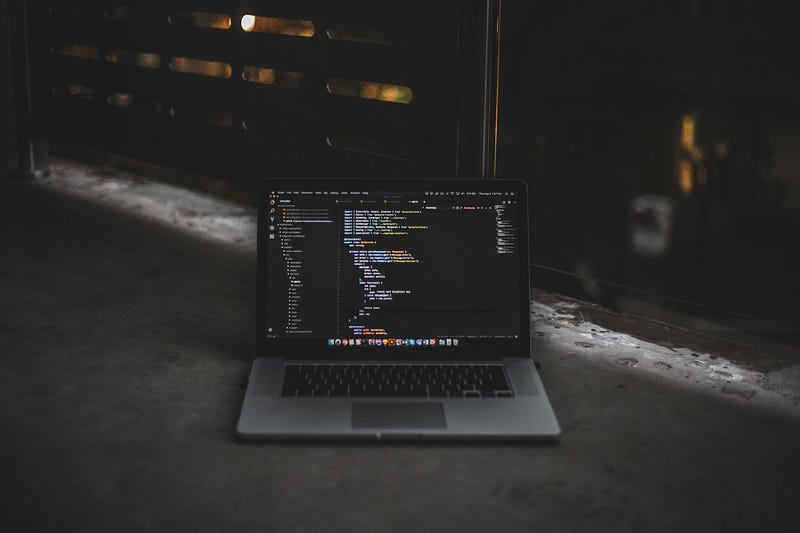8 Coding Habits That Transformed My Workflow Forever
These habits helped me write cleaner code, squash bugs faster, and never fear refactoring again.

I didn’t become faster by writing more code — I became faster by changing how I write it.
8 Coding Habits That Transformed My Workflow Forever
If I could go back and give my younger self a cheat sheet for becoming a better developer, I’d hand over a list of habits. Not frameworks, not languages — just habits.
Why?
Because the tools will change, but habits shape how you think, write, debug, and ship code. They compound over time, turning you from a decent coder into someone your team actually wants to work with.
Here are the 8 habits that quietly but permanently leveled up my workflow — and could do the same for you.
1. Write Code Like You Won’t Be the One Maintaining It
When I stopped writing code just to make it work, everything changed. I started thinking like the person who’d have to maintain this in six months (spoiler: it’s usually still me).
What this means:
- Use clear, descriptive variable and function names.
- Add small comments only where absolutely necessary.
- Avoid cleverness — choose clarity over conciseness.
Rule of thumb: If it’s hard to explain out loud, it’s probably hard to read.
2. Automate the Boring Stuff (Yes, Really)
I used to spend hours on repetitive tasks — setting up environments, deploying builds, or manually formatting code. Then I discovered automation.
Now I:
- Use scripts for setting up projects (
make setup, anyone?) - Automate tests and deployment with CI/CD
- Let Prettier and linters format and check code before I hit commit
The less mental energy I spend on routine tasks, the more I save for solving real problems.
3. Learn Your Editor Like It’s a Superpower
Most of us write code in an IDE or editor every single day. Yet so many developers treat it like a glorified notepad.
I finally sat down and learned:
- Advanced VS Code shortcuts
- Multi-cursor editing
- Regex search and replace
- Useful extensions (like GitLens, ESLint, or Jupyter)
Knowing your editor inside out is like switching from a butter knife to a lightsaber.
4. Start Small, Then Expand
Big features used to intimidate me. I’d try to write the whole thing in one go. Spoiler: it never ended well.
Now, I break things down:
- Start with the smallest working unit
- Ship MVPs early and often
- Iterate fast with real feedback
Shipping something small today is better than perfecting something big that never gets released.
5. Write Tests for the Critical Paths
I avoided writing tests for way too long, thinking they slowed me down.
Then I broke something in production… twice.
Now, I write tests for:
- Core logic
- User-critical features
- Edge cases that once bit me hard
I don’t aim for 100% test coverage — but 100% confidence in critical paths.
6. Master Git Beyond Just commit and push
Version control is more than just saving code. Once I learned how to:
- Rebase cleanly
- Use
git stash,cherry-pick, andbisect - Write meaningful commit messages
…I started collaborating like a pro, fixing bugs faster, and undoing mistakes without panic.
Git is like time travel for your code. Learn to use it wisely.
7. Read Code, Not Just Write It
Reading great code taught me more than any tutorial ever did.
I started:
- Browsing open-source repositories
- Reviewing my teammates’ pull requests closely
- Tracing through code I didn’t write
If writing code is speaking a language, then reading it is listening. You can’t master one without the other.
8. Take Breaks Without Guilt
It sounds counterintuitive, but walking away from the screen is sometimes the most productive move.
When I’m stuck, I:
- Go for a short walk
- Jot down ideas on paper
- Switch tasks for a while
More often than not, the solution appears once I stop forcing it.
Burnout kills good code. Rest fuels it.
Final Thoughts
Your tools, stacks, and jobs will change — but good habits will follow you everywhere. The sooner you develop them, the faster your growth.
You don’t need to adopt all eight habits at once. Just pick one, apply it this week, and see how it transforms your workflow.
Chances are, future-you will thank you.
Enjoyed the read?
If this resonated with you, drop a follow and check out my other posts on writing better code, automating workflows, and becoming a next-level developer.





